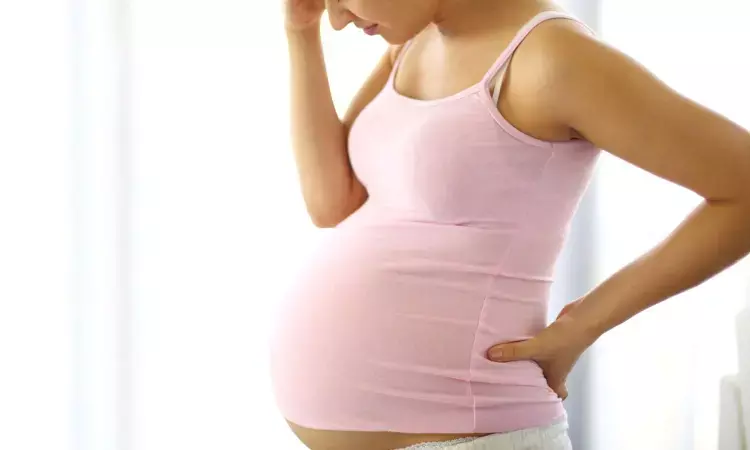- Home
- Medical news & Guidelines
- Anesthesiology
- Cardiology and CTVS
- Critical Care
- Dentistry
- Dermatology
- Diabetes and Endocrinology
- ENT
- Gastroenterology
- Medicine
- Nephrology
- Neurology
- Obstretics-Gynaecology
- Oncology
- Ophthalmology
- Orthopaedics
- Pediatrics-Neonatology
- Psychiatry
- Pulmonology
- Radiology
- Surgery
- Urology
- Laboratory Medicine
- Diet
- Nursing
- Paramedical
- Physiotherapy
- Health news
- Fact Check
- Bone Health Fact Check
- Brain Health Fact Check
- Cancer Related Fact Check
- Child Care Fact Check
- Dental and oral health fact check
- Diabetes and metabolic health fact check
- Diet and Nutrition Fact Check
- Eye and ENT Care Fact Check
- Fitness fact check
- Gut health fact check
- Heart health fact check
- Kidney health fact check
- Medical education fact check
- Men's health fact check
- Respiratory fact check
- Skin and hair care fact check
- Vaccine and Immunization fact check
- Women's health fact check
- AYUSH
- State News
- Andaman and Nicobar Islands
- Andhra Pradesh
- Arunachal Pradesh
- Assam
- Bihar
- Chandigarh
- Chattisgarh
- Dadra and Nagar Haveli
- Daman and Diu
- Delhi
- Goa
- Gujarat
- Haryana
- Himachal Pradesh
- Jammu & Kashmir
- Jharkhand
- Karnataka
- Kerala
- Ladakh
- Lakshadweep
- Madhya Pradesh
- Maharashtra
- Manipur
- Meghalaya
- Mizoram
- Nagaland
- Odisha
- Puducherry
- Punjab
- Rajasthan
- Sikkim
- Tamil Nadu
- Telangana
- Tripura
- Uttar Pradesh
- Uttrakhand
- West Bengal
- Medical Education
- Industry
Does electively induced labor in pregnancy affect a child's future school performance?

Researchers at Amsterdam UMC have found in a new study that inducing labour, in a low-risk pregnancy, can have long-term consequences on the child's cognitive development. These results are published today in the journal AOGS.
New research published in Acta Obstetricia et Gynecologica Scandinavica found that in women with uncomplicated pregnancies, elective induction of labor at any point between 37 and 41 weeks was consistently associated with lower school performance in children at age 12.
The analysis included 266,684 children born between 37 and 42 weeks from uncomplicated pregnancies in white women in the Netherlands. School performance scores at age 12 years were lower in those from pregnancies with induced labor at 37-41 weeks compared with those with uninduced labor. At 42 weeks, there was no significant difference in school performance between these groups.
The proportion of children who reached higher secondary school level was significantly lower after induction of labor at each gestational week from 38-41 weeks. For example, at 38 weeks, rates were 48% versus 54% in induced versus uninduced. (In the Dutch education system, when children reach the end of primary school, around 12 years of age, they are divided over four different levels of secondary education according to their intellectual ability. All children in the last year of regular primary education take a test to guide the choice of level of secondary education.)
“Of course, if there is an indication to induce delivery before 41 weeks, there is little doubt we should do this. But if the reason is purely elective, it is reasonable to be cautious of these subtle adverse effects,” said Wessel Ganzevoort, MD, PhD, senior investigator and maternal fetal medicine specialist at Amsterdam UMC.
Reference:
Renée J. Burger, Ben W. Mol, Wessel Ganzevoort, Sanne J. Gordijn, Eva Pajkrt, Joris A. M. Van Der Post, Christianne J. M. De Groot, Anita C. J. Ravelli First published: 22 February 2023https://doi.org/10.1111/aogs.14520
Dr Kamal Kant Kohli-MBBS, DTCD- a chest specialist with more than 30 years of practice and a flair for writing clinical articles, Dr Kamal Kant Kohli joined Medical Dialogues as a Chief Editor of Medical News. Besides writing articles, as an editor, he proofreads and verifies all the medical content published on Medical Dialogues including those coming from journals, studies,medical conferences,guidelines etc. Email: drkohli@medicaldialogues.in. Contact no. 011-43720751


